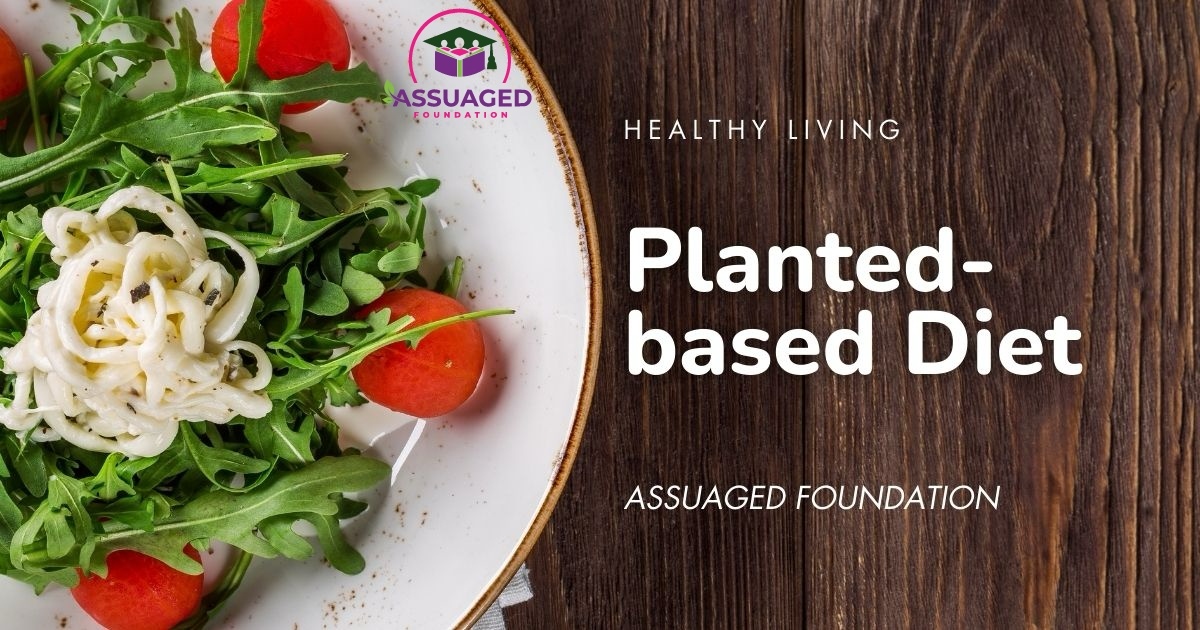There are various eating patterns in modern life that we can choose from, but have you thought about whether there is a diet that prevents you from chronic disease?
A plant-based diet can reduce one's risk of developing major chronic conditions like heart disease, diabetes, and certain cancers. By making nutrient-dense plant foods like fruits, vegetables, whole grains, nuts, and seeds the foundation of one's diet, one defends one's body with a powerful system of disease-fighting compounds.
Now, let’s explore more about the plant-based diet!
What is a Plant-Based Diet?
A plant-based diet[1] is consuming food made of plants, such as whole grains, fruits, and seeds. It is not a vegan diet. People can eat meat, eggs, and dairy products. However, the most nutrient intake should come from plant-based food sources.
In the plant-based diet, you can intake specific nutrients and certain necessary supplements from food, like macronutrients (protein, carbohydrate, and fat)[2]. However, the benefits of plant-based eating transcend personal well-being. This lifestyle promotes environmental sustainability and ethical awareness. By opting for plant-based sources of nourishment, you can significantly lessen the strain on resource-intensive animal agriculture[3]. What are some reasons that we choose a Plant-Based Diet?

Why choose a Plant-Based Diet?
A plant-based diet doesn't just benefit your body – it also helps take care of our planet Earth! By eating more plant foods and less meat and dairy from animals, we can reduce the resources needed for farming animals. This is better for the environment and shows respect for all living creatures.
Let's learn what diseases it can prevent:
Heart Disease:
-
Plant foods like fruits, veggies, whole grains, and beans are packed with fiber, antioxidants, and other good things that fight inflammation, lower cholesterol, and improve blood pressure[3]. These are all big risk factors for heart disease. People who eat a plant-based diet have much lower rates[4] of heart attacks, strokes, and other heart problems.

Type 2 Diabetes[5]:
This is a growing health problem worldwide, but plant-based diets can help. By eating lots of nutrient-rich plant foods with fiber and avoiding unhealthy fats and sugars, individuals can effectively manage their blood sugar levels[6]. Those who eat plant-based tend to have lower rates of type 2 diabetes and fewer complications [6]such as nerve damage, kidney disease, and vision loss.
Certain Cancers:
The plant compounds in fruits, veggies, beans, and grains can fight cancer. They have antioxidants and fiber that reduce inflammation and stop cancer from growing. A study[7] indicates that adopting a plant-based diet has the potential to reduce the likelihood of developing various types of cancer, including breast, prostate, and colon cancer.

How To Prepare A Healthy Plant-Based Meal?
Making plant-based eating sustainable long-term is about creating satisfying, flavorful meals you enjoy rather than feeling deprived. Here are some recommendations for meal preparation:
Meal Planning and Prep
-
Plan out meals and snacks for the week to ensure you have plenty of plant-based options ready.
-
Prep ingredients like chopped veggies, cooked grains, and roasted potatoes in advance for easy assembly.
Focus on Whole Foods
-
Build meals around minimally processed plant foods like vegetables, fruits, legumes, whole grains, nuts, and seeds.
-
Limit heavily processed vegan foods like veggie meats, cheeses, etc.
-
Get creative with beans, lentils, quinoa, and brown rice as plant protein sources.
Embrace Global Cuisines
-
Explore plant-based dishes from different cultures like Indian dals, Mediterranean grain bowls, and Mexican veggie fajitas.
-
International cuisines make abundant use of vegetables, spices, and plant-based proteins.
Maximize Flavor
-
Use fresh/dried herbs, spices, vinegar, and citrus to boost flavor without the need for meat/dairy.
-
Roast veggies to bring out deeper, richer flavors.
-
Incorporate umami ingredients like mushrooms, tomatoes, and soy sauce.
Stock Up on Plant-Based Staples
-
Canned/dried beans and lentils
-
Whole grains like quinoa, brown rice, farro
-
Nut butter for added protein/healthy fats
-
Versatile veggies like sweet potatoes, cauliflower, kale
One thing to remember: avoid added sugar and too much oil!

Embark on this exciting journey, and you'll soon realize that plant-based living goes beyond just a diet – it's a wonderful way to reconnect with the beauty of nature. Let's explore various plant-based dishes from different cultures that will delight your taste buds and nourish your body.















